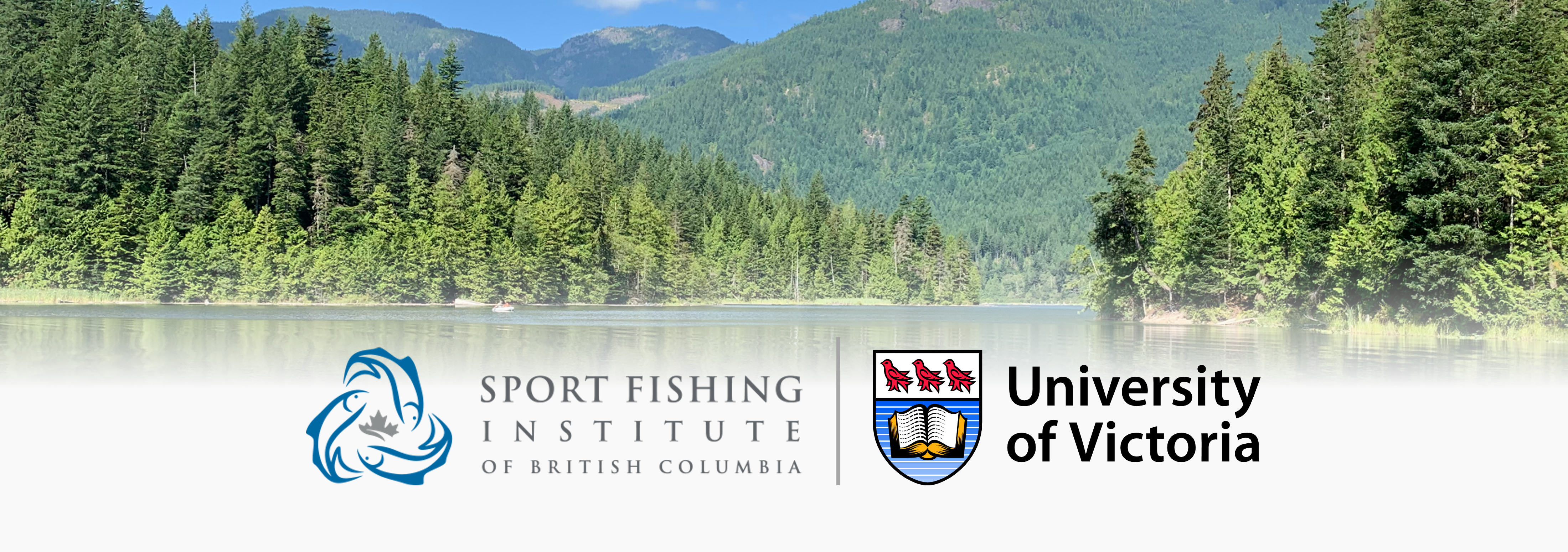
Welcome to the BC marine recreational fishing socio-cultural survey website.
A collaboration between The University of Victoria Marine Ethnoecology Research Group (Uvic MER) and The Sport Fishing Institute of British Columbia (SFI).
Saltwater recreational fishing in British Columbia (BC) is important culturally and economically. Ocean management measures (such as permanent or time/area closures) can impact recreational fishers’ well-being (e.g., changing access and opportunities, loss or gain of livelihoods, improved or decreased food access).
While several economic studies about BC saltwater recreational fishing exist, no studies have focused on the socio-cultural importance in BC and the effects of ocean management measures on fishers’ well-being.
Accordingly, UVic MER and SFI co-developed an online survey that was administered over social media to individual fishers in late February and March 2023 (details below). This interactive dashboard reports the results.
What was collected?

The survey asked about:
- Fishing activities
- Motivations
- The impacts of management measures
- Beliefs and attitudes about management
- Information sources about management measures
- Citizen science and resource stewardship activities
After initial quality controls (details below), we retained 1,918 surveys. Participants were free to skip questions, so the total number of responses may be lower for some questions (responses per question are shown in the dashboard).
What time period did the survey cover?

- They survey was restricted to people that had fished in BC tidal (salt) waters in the past 5 years (2018/2019 to 2022/2023 fishing seasons).
- Several question focused only on the 2022/2023 season.
- Certain data filters on the dashboard will restrict the data to only people that fished the 2022/2023 season.
How were fishing locations and activities recorded?

- Fishing location information was recorded for each of five years.
- The number of days fished per region was recorded for the 2022/2023 season.
- People could record fishing in more than one region per year.
- All other questions such as method of fishing, species caught, management impacts, etc., were recorded in general and not for each region.
- For a fisher that fished in multiple regions, we cannot be certain where a reported activity occurred.
- The dashboard communicates this uncertainty by displaying the percentage of responses from fishers that only fished in a selected region vs. those that fished in the selected region and at least one other region.
Navigating the dashboard:
- Navigate though different topics using the table of contents on the left.
- Apply filters (icon in top right) to explore the responses.
- Click on the question mark to learn more about a page.
- Compare different groups (e.g., age, income, service sector, etc.) using the toggle switch.
Survey Details (click '+' to expand)
Details
Background
British Columbia has approximately 300,000 license holders participating in tidal recreational fishing opportunities. Thus, the recreational fisheries sector is a major contributor to BC local economy, benefiting fishing services and service providers.
Ocean management measures such as marine protected areas, fisheries closures, among others have direct social, cultural and economic impacts on recreational fisheries users (e.g., changing access and opportunities, loss or gain of livelihoods, improved or decreased food security). While several studies analyze the economic impacts of ocean management measures, there is limited understanding of their potential positive and negative social and cultural effects. Such an understanding is important and can help managers to address potential concerns, help users and services providers to better adapt to the changes, and improve the overall effectiveness of ocean management measures while supporting the recreational fisheries sector.
In late 2022, SFI and Uvic MER began working together to better understand how ocean management measures affect the wellbeing of recreational fishers and fisheries.
In January and February 2023, SFI staff and UVic researchers developed an online survey to assess the above knowledge gaps (UVic Ethics Protocal # 21-0534). The survey was administered 21 February to 14 March1. The survey’s target demographic was individual fishers.
The survey
The survey consisted of 48 questions and was administered online using the cloud-based survey tool SurveyMonkey. Initial screening questions asked if people had fished in the past year or five years. Not having fished in the past five years triggered a survey exit page; however, individuals were given an option to re-enter if they felt they had made a mistake in their previous answer. Individuals that had not fished in the past year skipped survey pages focused solely on the past year.
The survey was advertised at two time periods on SFI’s social media, which included paid boosts, and email list serve, and was advertised on the SFI website, two BC angler web forums, and at SFI’s exhibition booth at the BC Sportsman’s show (03 - 05 March 2023). Participation was incentivized through the option to participate in a raffle to win a fishing reel or one of ten $100 gift cards to an online fishing equipment store.
Response
The survey received 2,088 responses, with a typical completion time of 23 minutes (as reported by SurveyMonkey). Incomplete surveys were retained for analysis; however, responses that did not complete questions passed the initial screening page, as well as two cases that skipped both the one and five year screening question, were removed from analysis for a final sample of 1,918. Participants were free to skip questions, so the total number of responses may be lower for some questions (response numbers per question are shown in the dashboard).
1Dissemination materials (e.g., announcements on social media, websites, and listservs) announced that the survey would be closed on 14 March 2023, at which point entry to win one of several prizes used to incentivize participation would close. The survey was left open for another two weeks (until 27 March 2023) to allow any individuals that wished to complete the survey, but had not yet done so, to participate.”)
Who replied to the survey?
Respondents that fished in the past year (i.e., 2022/2023 season) and total respondents
People that did not fish in the 2022/2023 season automatically skipped questions about the 2022/2023 season. Therefore, the total possible number of surveys for 2022/2023 questions is smaller than the overall number of surveys.
Type of license(s) held
Fishers were asked what type of license they held. They could report holding more than one type.
Are they employed by a sector servicing anglers?
Fishers were asked if they owned or worked for a business that directly served anglers (e.g., guides, lodges, or tackle shops) or indirectly served anglers (e.g., marine services or travel providers that were not specific to anglers, but where anglers comprised a portion of the business). People filling out the survey could pick more than one option. We grouped people who indicated both direct and indirect in the direct service sector in order to create three comparable groups (Direct, Indirect, and General Public (i.e. 'no, not employed').
How did they fish recreationally in the 2022/2023 season?
Fishers were asked how they fished. They could chose more than one option.
Demographic Breakdown
Use the interactive table below to explore additional demographic information about the survey participants.
Where are People Fishing?
What are People Fishing For in the 2022/2023 Season?
Motivations
Compare Groups
Fishing Changes Over the Past 5-Years
Compare Groups
Impacts of Management Measures During the 2022/2023 Season
Compare Groups
Attitudes & Beliefs About Management
Compare Groups
Sources of Information
Compare Groups
Stewardship & Citizen Science
Compare Groups
Project Members
Dr. Natalie Ban
Professor and President's Chair
School of Environmental Studies, University of Victoria
Dr. Jesse Sayles
Research Associate
School of Environmental Studies, University of Victoria
Interested in working with the survey data? Please write to Dr. Natalie Ban.
Contact Us
For questions about this project and/or website:Email: Dr. Natalie Ban

